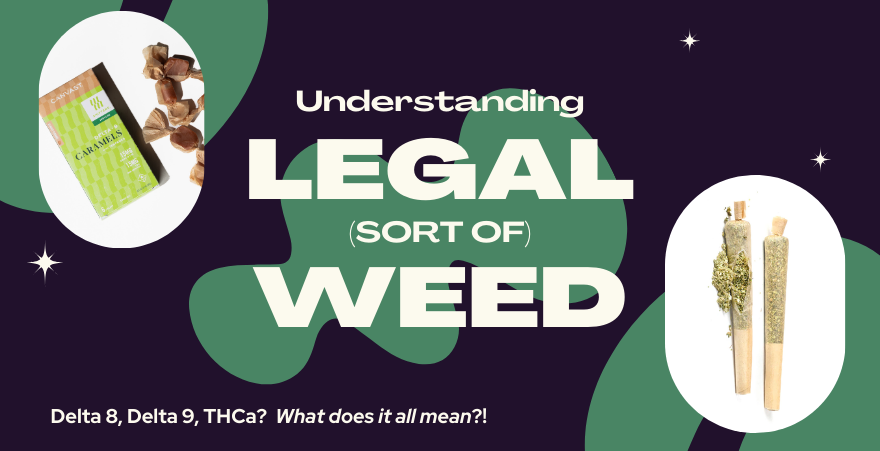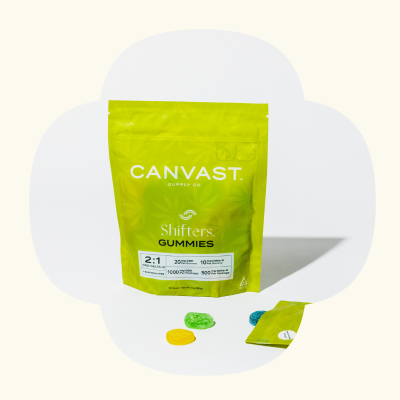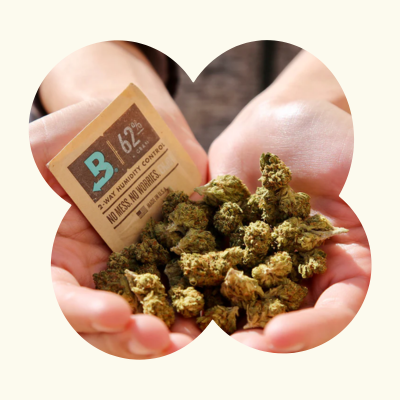

 Hey there, fellow cannabis enthusiasts! If you've ever felt puzzled by terms like Delta 8, Delta 9, and THCA, you're not alone. In this blog, we're breaking down the basics and answering some burning questions: What do these terms mean? Why are some legal while others aren't? Where can you find them? And most importantly, are they safe? Let's dive in!
Hey there, fellow cannabis enthusiasts! If you've ever felt puzzled by terms like Delta 8, Delta 9, and THCA, you're not alone. In this blog, we're breaking down the basics and answering some burning questions: What do these terms mean? Why are some legal while others aren't? Where can you find them? And most importantly, are they safe? Let's dive in!
By George Antwi & Gia Franzone
The Basics
Cannabinoids: To understand these terms, you first have to know about cannabinoids. Have we already lost you…? Cannabinoids are naturally occurring chemicals in the cannabis plant that interact with the endocannabinoid system in the human body. This interaction can affect mood, pain sensation, appetite, and other functions. Delta 8 and Delta 9 are simply different cannabinoids found in the cannabis plant.

Delta 9: The primary psychoactive compound in cannabis, responsible for the euphoric effects commonly associated with marijuana use. It's what gives you the classic "high" feeling and what people are often referring to when they say “THC”.
Delta 8: A cannabinoid found in cannabis plants, similar to Delta 9 THC but with a slightly different molecular structure. It's often described as providing a smoother, more clear-headed high compared to Delta 9 THC.
THCa: A non-psychoactive acid found in raw and live cannabis plants. When heated through smoking, vaping, or cooking THCa converts to Delta 9 THC in a process called decarboxylation and becomes psychoactive.
THCa can be consumed in raw forms such as fresh cannabis leaves and flowers, juicing, or cold-pressed extracts.It can also be found in some specialized tinctures, capsules, and topicals designed to maintain its raw, non-psychoactive form. THCa flower and pre-rolled joint, which is intended to be heated, are also beginning to pop-up on the market.
Hemp-Derived and Legal Status
It’s hard to miss the new Delta 8, Delta 9, and THCa products that are popping up online and in stores. These products offer psychotropic effects (in other words, they get you high), which begs the question, “How can this be legal?”.
 The reason these products are legal at the federal level and available for purchase outside a dispensary is because they are derived from hemp plants and thus ok under the 2018 Farm Bill. The Farm Bill was intended to protect domestic hemp growers and allows for products to be sold that are hemp-derived and contain less than 0.3% Delta 9 THC.
The reason these products are legal at the federal level and available for purchase outside a dispensary is because they are derived from hemp plants and thus ok under the 2018 Farm Bill. The Farm Bill was intended to protect domestic hemp growers and allows for products to be sold that are hemp-derived and contain less than 0.3% Delta 9 THC.
Reputable companies that sell hemp-derived Delta 8, Delta 9, and THCa products are careful to meet these requirements and include an independent certificate of analysis on their website, with each order, or a QR code to the independent certificate of analysis on their packaging.
However, in the past few years, many states and local governments have gotten wise to hemp-derived Delta 8, Delta 9, THCa as psychotropics and have begun passing legislation to limit its sale. Legal status has begun to vary by jurisdiction and interpretation of the law, especially for Delta 8 as its popularity has grown. This may all soon change as Congress aims to close this loophole on hemp-derived Delta 8, Delta 9, and THCa in the newest Farm Bill, expected to pass in 2024.
Recently, the DEA has expressed concerns about the legal status of THCa, suggesting it may not be considered legal hemp if it converts to THC when heated. The DEA's stance indicates a potential reevaluation of THCa’s classification at the federal level, which could affect its legality.
Preference and Personal Experience
Intensity: One of the most significant differences between Delta 8 and Delta 9 THC is the intensity of the high they produce. Delta 8 is widely considered to offer a milder, more manageable high, making it appealing to users who want to experience the benefits of THC without feeling overwhelmed.

Effect on Anxiety: Many users report that Delta 8 produces less anxiety and paranoia compared to Delta 9. This can make it a preferred choice for individuals who are sensitive to the psychoactive effects of cannabis or who experience anxiety with traditional marijuana products.
Ultimately, the choice between Delta 8 and Delta 9 comes down to availability, legality, personal preference and individual experience. Some users may prefer the potent effects of traditional THC while others may opt for the milder experience offered by Delta 8. (Your authors very much prefer the milder effects of D8 THC!)
Understanding the differences between Delta 8, Delta 9, THCa is essential for cannabis enthusiasts purchasing products and navigating the complex legal and therapeutic landscape. Delta 8 offers a milder high and is often more legally accessible due to its derivation from hemp. THCa, a non-psychoactive precursor to THC, is gaining attention in its raw form for its potential health benefits and popularity as a legal hemp-derived flower. As legal interpretations and regulations evolve, staying informed helps users make safe and compliant choices!
Have questions about the world of hemp-derived products? Please reach out to us at info@budkups.com.
June 6, 2024
